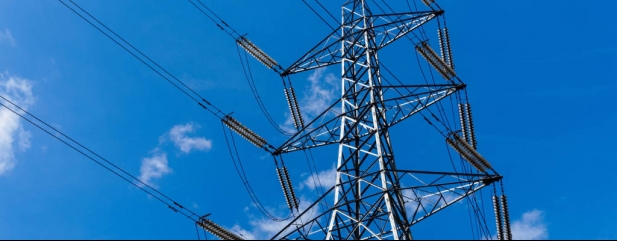Archived article
Please note that tax, investment, pension and ISA rules can change and the information and any views contained in this article may now be inaccurate.
Questions still linger over National Grid and SSE dividends

Large utility companies will make lower returns under new plans by energy regulator Ofgem, yet the cuts aren’t as bad as previously mooted. That triggered a relief rally in the shares of SSE (SSE) and National Grid (NG.) on 8 December, however the changes only provide slight relief to pressure on future dividend payments.
With the new five-year returns framework due to come into force from April 2021, the apparent 5.9% yield on offer from National Grid and 6% from SSE (based on consensus forecasts for their respective March 2022 financial years) could be tough to deliver.
In July 2020 Ofgem sparked some shock and anger in the sector with a cut in the baseline rate of return from the 7% to 8% which had been allowed under the regulatory regime in place from 2013 to just 3.95%.
The new rules lift the rate to 4.3% but that may not be enough to placate the power networks and they could still take an appeal to the Competition and Markets Authority (CMA).
They may take some encouragement from the success enjoyed by their counterparts in the water utilities space who submitted their own appeal to the CMA following the publication of new price controls covering the period from 2020 to 2025 from that sector’s regulator Ofwat.
In provisional findings published in September 2020 the CMA argued for a more generous settlement for the water firms with ‘an adjustment to the allowed rate of return to investors to reflect market evidence and best regulatory practice, with a view to ensuring continued investment in the sector’.
This sets an encouraging precedent for SSE and National Grid who have made the argument that they will be unable to deliver on the transition to greener forms of energy and reduce carbon emissions under Ofgem’s new regime – basically the question being how will they attract the necessary investment if they can’t offer attractive returns?
To partly address the point on delivering a cleaner future for energy, the spending package for investment over the five years has been increased by 20% to £30 billion, with an extra £10 billion under consideration for future green projects.
The post-Covid environment will create its own pressure to reduce the strain utility bills place on households and this could be a long-term issue for the wider space whatever the outcome of this current process.
These latest developments also demonstrate that while utilities are often considered to be lower risk investments and reliable sources of income, because their returns are regulated and therefore predictable, there are still risks associated with regulatory decisions and these returns are only predictable for fixed periods.
Important information:
These articles are provided by Shares magazine which is published by AJ Bell Media, a part of AJ Bell. Shares is not written by AJ Bell.
Shares is provided for your general information and use and is not a personal recommendation to invest. It is not intended to be relied upon by you in making or not making any investment decisions. The investments referred to in these articles will not be suitable for all investors. If in doubt please seek appropriate independent financial advice.
Investors acting on the information in these articles do so at their own risk and AJ Bell Media and its staff do not accept liability for losses suffered by investors as a result of their investment decisions.
Issue contents
Exchange-Traded Funds
Feature
First-time Investor
Great Ideas
Money Matters
News
- Supply chain issues could mean a bleak winter for UK consumers
- Big Goco shareholder Peter Wood throws weight behind Future tie-up
- Questions still linger over National Grid and SSE dividends
- Key catalysts for markets before the end of 2020
- Flutter Entertainment secures prize US asset
- Fast growing hydrogen stock Ceres gets closer to fulfilling its potential

 magazine
magazine









